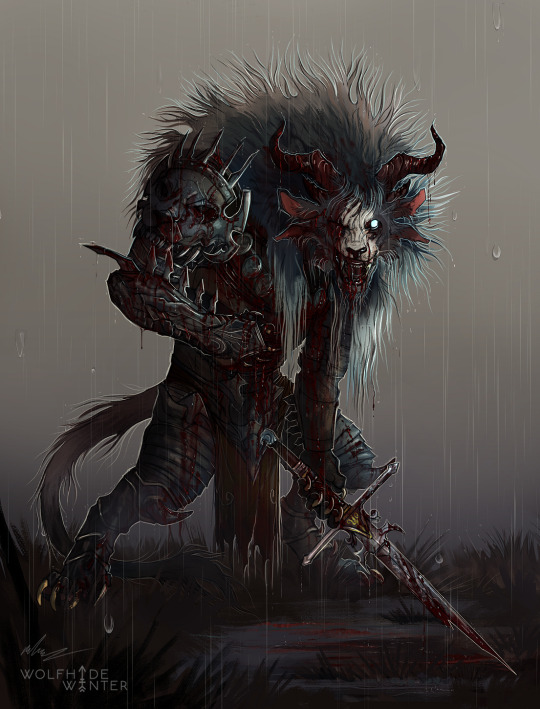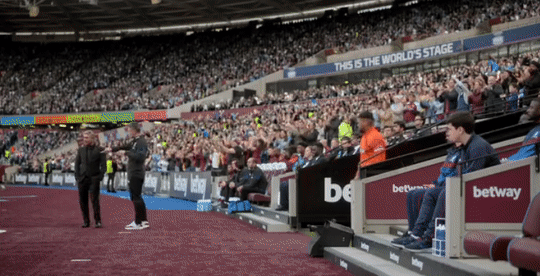#aggression
Text

My goodness!!!
#incel#violence against black women#violence against black girls#Samyia Spain#brooklyn#new york#deli#stabbing#twin sisters#veo kelly#park slope#assault#murder#criminal possession of a weapon#rejection#aggression#tragedy#violence#investigation#search#criminal history#robbery charges#community reaction#vigil#grieving father#women's safety#pressure to give phone numbers#public gathering place#neighborhood impact#emotional toll
130 notes
·
View notes
Text

#nuns#attack#aggression#uzi#machine gun#sexy#evil#violence#murder#killers#madness#vintage pulp#pulp art
89 notes
·
View notes
Text
I was at a protest, got really angry about someone being aggressive to my group, and so tried to start a riot by throwing something and yelling "RIOT!!!" Instead, it started a street rave. I ended up having a dance-off with my aunt and trying to flirt with one of the maids from Downton Abbey.
337 notes
·
View notes
Text
Watching someone cry often evokes an emotional response—but according to a new study published Thursday, human tears themselves contain a chemical signal that reduces brain activity linked to aggression.
The research was carried out by the Weizmann Institute of Science, Israel, and appeared in PLOS Biology, a US science journal. Though it involved female tears, because women made themselves available as donors, it probably isn't a sex-dependent effect, the authors say.
Continue Reading.
74 notes
·
View notes
Text

Commission for @/Stair_Cat of their Charr :)
"All Charr are bred for war. The only difference is Rex is still alive."
#Guild Wars 2#guild wars art#Charr#Art#Blood#Gore#Aggression#Violence#Sword#Wounded#Warrior#Rain#Myart#Wolfhidewinter
363 notes
·
View notes
Note
I know you’ve mentioned toto drawing blood recently and it’s made me wonder: what are you supposed to do you when your bird bites you? It’s not like you can just set them down and walk away (at least not in my case, he will immediately fly back to me). I’ve been trying really hard to pay attention to body language and reduce hormonal triggers to try and prevent them more in the first place, but it’s left me wondering what I should be doing in the immediate moment.
much love to the husbirbs!
It varies on the scenario, species, and resources available
The biggest priority when dealing with a bite is safety - don't just leave your hand there waiting for them to calm down (worlds worst tidbit of outdated information), be proactive in getting yourself to safety. For most birds you can curl your hand in to a fist and present the back of your hand to use like a shield as there's no loose skin to grab on to and swiftly remove yourself from the situation. If they're on you grabbing your neck/ arm/ wherever depending on the intensity of the bite you may be able to just peel them off with a perch or use a high value treat lure/ well known behaviour to redirect them off of you. With birds that latch on and don't let go you want to move your hand in towards them to cause them to release their grip so you can get out, if they're on you biting what they're standing on you can use an object to tap the top of their head which typically triggers them to release and latch on to the other object while you pry them off.
A key thing to keep in mind is that once a bite has happened the damage is already done, there's no point trying to make a big deal out of the moment or apply more fear/ punishers to the situation. If we make a big deal out of a bite and tell them 'no gentle!, bad bird!" etc. you're drawing a lot of attention to the bite which can either cause them to be focused on it and be more likely to repeat it, cause them to feel more threatened, or your addition of noises/ arm movements can be interpreted as entertaining which can cause the bird to begin to fake aggression just to get a reaction. If we apply punishers, yell, or otherwise add more stress after the bite we're just confirming to them that we were in fact scary and that the bite was warranted, causing them to be more hesitant towards us in the future and potentially be more likely to use biting as a primary form of communication.
The bite having happened has occurred because something was triggering enough to cause it, they experienced whatever they were feeling and felt that a bite was necessary to alleviate it. A behaviour we don't want was practiced, the feelings they experienced have been associated with us, from this point on we want to make sure we can undo what they've just learned.
Each bird, each trigger, and each emotion behind a bite will all warrant different approaches following it.
If the bite occurred and you're feeling really distraught and emotionally unregulated it's best to prioritize that - if you need to cage them or just shut them in a room for a couple minutes so you can catch your breath and regain control then absolutely do that. There's nothing you can add to this situation by being impulsive or struggling yourself.
If the bird is lunging, hissing or clearly distressed by your attempts to remedy the situation then take a step back and give them a break. Continuing to trigger them will only make them ingrain those emotions with you even more, they need to be under threshold to be able to make new, happier, connections.
Next goal after getting yourself safe is to have a couple moments of neutrality. Ideally getting them on to a perch and just standing a couple steps away, no eye contact, body angled away from them, head tipped down, hands out of sight, remaining pretty still and quiet. This is a moment for both parties to breathe after the event, regulate emotions, realize they're safe, and reset. If they keep trying to get at you aggressively it may be best to leave entirely, if they're trying to get at you because they're more comfortable on you than the perch you can try a different spot, try standing closer, try being lower than their perch, try moving their perch up higher if you're not comfortable with them on you at that time. I like to use my knees for these situations, just sit down with my knees up so the bird can sit on me but be somewhere I can easily control if they aggress again. You can also utilize thick coats and gloves to help you mentally feel a bit better.
After that moment to breathe and reset you progress depending on the bird and the trigger. In some cases offering tasty treats can help them form new associations with you - in others the aggression was triggered by excitement so adding more exciting food to the situation can trigger it again. For some talking to them calmly can be a safe way to reengage with them, announce peace between the two and be able to progress - for others any vocalization may be interpreted as you being more confrontational. For some just sitting quietly near one another can reset the situation and cause them to realize it wasn't threatening - for others the continuous silence can cause them to stew in their feelings and retaliate. For some just remove the trigger from the situation and they'll regulate again, you can work on desensitizing that trigger another day - for some there isn't an easy clear cut trigger so you now get to evaluate what just happened and try to isolate it while monitoring your own body language extremely closely.
The main goal is to help them no longer feel like biting is necessary, achieving emotional regulation, form new positive associations, and isolate/ prevent the trigger from occurring again. Biting is a symptom of a bigger problem, and treating the root problem is going to be the most effective way to get long term solutions to that biting.
69 notes
·
View notes
Quote
Now, under the neoliberal regime of auto-exploitation, people are turning their aggression against themselves. This auto-aggressivity means that the exploited are not inclined to revolution so much as depression.
Byung-chul Han, Psychopolitics
234 notes
·
View notes
Text
A historical lesson about the countries, cities and regions that were nominated to be a homeland to Israel.
1. State of Ararat (Buffalo, NY)
The American Jewish diplomat and journalist, Mordechai Manuel Noah, proposed the idea of establishing a homeland for the Jews in Buffalo, New York, in 1825, however the Jews weren’t fond of the idea.
Source: Anatolia - BBC
2. State of Argentina
In 1891, the Jews relied on agricultural colonialism under the supervision of the German Jew Maurice de Hirsch, who bought millions of hectares in Argentina, however the idea and plan failed and the Jews had to emigrate from there as a result of economic crises in Argentina.
Source: Anatolia - BBC
3. State of Sinai (Sinai, Egypt)
In 1897, the founder of international Zionism, Theodor Herzl, wanted to settle Jews in the city of Al-Arish in the Egyptian Sinai Peninsula, which was under British colonial rule, but the rejection of the idea by the Ottoman Sultan Abdul Hamid prevented its implementation.
Source: Anatolia - BBC
4. State of Uganda
In 1903, British Colonial Secretary Chamberlain proposed establishing a temporary homeland for the Jews in Uganda, but the idea received great opposition from the Zionists, who saw Palestine as the only appropriate place to establish their state.
Source: Anatolia - BBC
5. Birobidzhan State
The Jews planned to build a state in the city of Birobidzhan in the Jewish Autonomous Oblast region, which prompted them to emigrate there in 1928, but that ended after Soviet leader Stalin suppressed them, executed the head of government, and closed the synagogues.
Source: Anatolia - BBC
They were against making Uganda a homeland because they have the perception that Palestine is the appropriate land to establish their state. This just means that they had it all in their mind a long time ago from decades and centuries. They had a plan all along!!!
Imagine after all this, they still claim they have a “land” and they are the rightful owners of the Palestinian land. If Palestine was originally their land why did they have many attempts conquering other lands to make it their home? the only answer is that they have no homeland.
#free palestine#palestine#gaza#the land is palestinian land#genocide#colonialism#barbarism#aggression#violence#israel#argentina#buffalo new york#sinai egypt#Uganda#Birobidzhan
53 notes
·
View notes
Photo

“Perpetrator-Amygdala”
Trussed72.deviantart.com
157 notes
·
View notes
Quote
Man is motion toward the world and toward his like. A movement of aggression, which leads to enslavement or to conquest; a movement of love, a gift of self, the ultimate stage of what by common accord is called ethical orientation. Every consciousness seems to have the capacity to demonstrate these two components, simultaneously or alternatively.
Frantz Fanon, Black Skin, White Masks
74 notes
·
View notes
Text
Whenever there is a surge of emotions, like excitement from new AAC...
It "unbalances" me, makes me dysregulated. Which leads to aggression and outbursts later (usual trigger by "small" thing, which is still often big to me). I have a strong and long history of aggression and physical violent outbursts.
Even though it is good, it still have negative reaction later, like my body tries to "cancel out" the strong surge of excitement and happiness from earlier.
I hate this part of my autism. And especially hate that it is such a big part for me, my whole life.
Not happy with this explanation, it is not good enough. But I am angry and frustrated and prone to aggressive outburst right now. And I am tired and no more words. So I will stop here, but post this anyway.
52 notes
·
View notes
Text
Hi everyone,
I was looking into aggression, since I can be aggressive towards people. And it turns out that it’s not from poor self control. It’s the opposite. According to one article:
Summary: A new study contests the belief that aggression stems from poor self-control. Instead, it suggests that aggression is often a deliberate, controlled act, inflicted to maximize retribution.
This finding, based on meta-analysis of multiple psychology and neurology studies, contradicts the traditional approach of treating violent tendencies by boosting self-control. It implies that such interventions may even enable some people to better execute their aggressive instincts.
Key Facts:
1. Aggression does not necessarily arise from poor self-control. Instead, it can be a calculated act of retribution, requiring self-discipline to carry out effectively.
2. Evidence suggests that self-control training programs do not necessarily reduce violent tendencies.
3. Research indicates that the brain’s prefrontal cortex, a center of self-control, shows increased activity during aggression, further debunking the association between poor self-control and aggression.
The full article will be below if anyone is interested in read it.
Aggression
#aggression#tw aggression#I must be naturally aggressive…#feel free to share and reblog#Neuridcience News#tw eye strain#tw bright colors
54 notes
·
View notes
Text

#vintage pulp art#pulp art#bat#bats#attack#aggressive#aggression#horror#terror#comics#comic art#comic
213 notes
·
View notes
Text
One thing I noticed from the first West Ham match in season 3 is that Jamie seems to be struggling to maintain his anger at Nate and West Ham. Everyone else on the team maintains direct eye contact with Nate when they come back, but Jamie looks away briefly before looking back at him. Additionally, Jamie is the only one who we don’t see playing aggressively.

I think that this is because deep down Jamie isn’t a really an angry person. The times we’ve seen him “angry” on the show, he seems more irritated or frustrated or fearful than actually mad. He is great at bringing out anger in others while maintaining some level of calm. I think part of the reason behind that is that he doesn’t like waiting for the other shoe to drop, so he pushes people to limit so that he doesn’t have to be on edge around them. But I also think part of it is that he’s seen how anger can hurt people, and he doesn’t really want to act out of anger ( despite being a prick in season 1, I don’t think he was a prick because he was angry, but because he was scared and his father conditioned him into becoming a prick).
So, when the team walks out angry, I don’t think Jamie is actually anticipating for everyone on the team to go apeshit on West Ham. Or, at the very least, he himself doesn’t want to go apeshit on West Ham. Because he knows that despite everything, it’s not the players fault that Nate did something shitty. And I don’t think he’s really that angry towards Nate because he’s done shitty things as well and knows what it’s like to be in Nate’s position.
47 notes
·
View notes
Text
Just saving this is a vocalization reference for what an agitated and likely-to-bite Toto sounds like
34 notes
·
View notes
